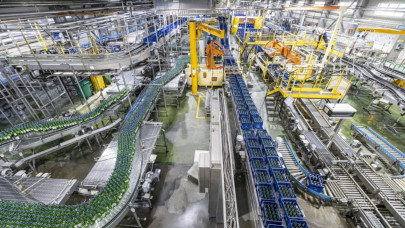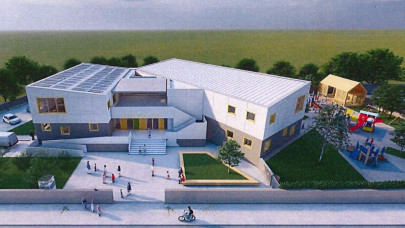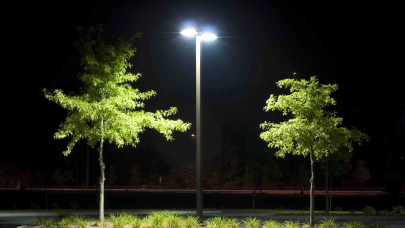The company Sphera Franchise Group SA is the largest operator in the food service industry in Romania and geographically serves three European markets: Romania (173 restaurants), the Republic of Moldova (2 restaurants) and Italy (20 restaurants).
Sphera Franchise Group has published its report on the risks and opportunities associated with climate change.
The report complements the efforts of the Group's Sustainability Strategy and is structured on the four pillars of the TFCD (Task Force on Climate-related Financial Disclosures): governance (the Board of Directors supervises the implications arising from the problems generated by climate change), strategy (analysis of climate-related scenarios to assess the potential impact of those significant risks on the business under hypothetical climate conditions), risk management (identification of financial and non-financial risks) and performance indicators and targets (annual calculation of direct and indirect carbon emissions).
”Technological risks are systematically addressed throughout the process of implementing measures to reduce the environmental impact and the carbon footprint. One of the targets we already committed to is achieving 100% energy-efficient lighting (LED lighting) for all our sites by 2024. At the same time, we will continue to assess the feasibility of other green investments, such as installing alternative energy systems, replacing temperature control systems, implementing smart air conditioning systems and more”, the company specifies in the report.
Sphera Group is also considering getting involved in green development projects with local or central authorities.
Greenhouse gas emissions per activities at the Sphera Group level (Romania, Italy, Republic of Moldova), in 2019, were 13,729.34 tons of CO2 eq. They decreased in 2020 to 13,050.47 tons of CO2 eq and then in 2021 they went up to 15,387.03 tons of CO2 eq.
These greenhouse gas emissions are: Emissions from the combustion of its own fleet fuel, Emissions from the combustion of natural gas used directly in day-today activities (cooking, burning or space heating), Emissions associated with electricity purchased for consumption, Emissions associated with raw materials, supply chain, logistics operations, waste management and business travel without its own fleet.
“For 2020, in quantitative terms, carbon emissions have decreased compared to 2019, amidst a decrease in the intensity of economic activity due to the pandemic context and therefore in energy consumption. 2021 was the year of recovery for activities at all levels and the development of the restaurant network, with a notable increase in resource consumption and carbon emissions compared to the baseline year 2019. The increase in resource consumption and carbon emissions is due to the opening of 12 new restaurants. We have started the process of implementing the TCFD recommendations with the aim of improving our procedures for identifying, assessing, mitigating, managing and reporting climate risks and setting a target for reducing greenhouse gas emissions. In the future, we aim to adapt the reporting process to include both our green investments and their operational costs”, the report reveals.
Also, the restaurants, logistic and administrative centers are insured through insurance policies that mostly cover the risks associated with extreme weather phenomena, but also any damage caused to third parties.
The identified chronic physical risks require a number of measures that the organization has already started to put into practice, such as digital automation solutions for air temperature management in cold storage and restaurants, LED lighting and energy efficient equipment/facilities energy consumption. Medium- and short-term energy management plans also include investments in electricity generation capacities in a sustainable way.
The company states that it considers it very important to work with local authorities and communities in terms of the sustainable use of natural resources.
The company's Sustainability Strategy is based on four pillars: governance, strategy, risk management, performance indicators and objectives.
The company's goal in the field of sustainability is to be a leader in the food service industry, by maintaining a balance between the impact generated by all its business activities, the needs of society and the environment.
Sphera Group specifies that it is particularly important to ensure that our environmental impact through greenhouse gas emissions is gradually reduced. To this end, since 2019, the company has been calculating its direct and indirect carbon emissions (Goal 1 and Goal 2) annually, rigorously monitoring its energy consumption to get a clear picture of the effectiveness of the measures implemented. In regard to Scope 3, it aims to undertake a thorough analysis of its supply chain emissions in the coming years and, together with its partners, decrease the carbon footprint.
Sphera owns the companies that operate in franchise system the brands: Kentucky Fried Chicken (KFC); Pizza Hut Dine-In; Pizza Hut Delivery (in master-franchise system); Taco Bell.













